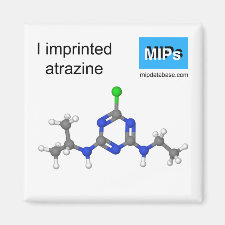
Authors: Barahona F, Díaz-Álvarez M, Turiel E, Martín-Esteban A
Article Title: Molecularly imprinted polymer-coated hollow fiber membrane for the microextraction of triazines directly from environmental waters.
Publication date: 2016
Journal: Journal of Chromatography A
Volume: 1442
Page numbers: 12-18.
DOI: 10.1016/j.chroma.2016.03.004
Alternative URL: http://www.sciencedirect.com/science/article/pii/S002196731630231X
Abstract: In this work, novel molecularly imprinted polymer-coated hollow fibers (MIP-HFs) have been prepared and evaluated for the development of a micro-solid phase extraction method for the analysis of triazines in aqueous samples using high performance liquid chromatography and UV detection. The proposed extraction method combines liquid-liquid microextraction and molecular imprinting technology. In brief, a thin film of toluene is immobilised in the pores of the obtained MIP-HF. Afterwards, the conditioned MIP-HF is immersed in the water sample. Under stirring for a certain time, the target analytes are liquid-liquid extracted from the sample to the immobilised toluene and then these diffuse to the specific binding sites of the MIP. The effect of various experimental parameters as time and stirring-rate and salting-out effect among others, were studied for the establishment of optimum rebinding conditions. Recoveries for seven triazines tested in 100 mL pure water samples spiked with 15 μg L-1 of each triazine were within 0.8-6.9%, with a relative standard deviation (RSD) < 10% (n = 3). The detection limits (LODs) were within 0.05-0.1 μg L-1, depending upon the triazine. The proposed methodology was successfully applied to extract the triazines from spiked tap and river water samples at μg L-1 concentration level. The mircroextraction procedure with the developed MIP-HFs overcomes the typical low performance and lack of selective recognition of MIPs in aqueous media, allowing the determination of triazines in environmental waters at expected real concentration levels
Template and target information: triazines, propazine, PPZ, Desethylatrazine, DEA, desisopropylatrazine, DIA, simazine, SIM, cyanazine, CYA, atrazine, ATR, terbutylazine, TER
Author keywords: triazines, imprinted polymers, supported liquid membrane, Micro-solid phase extraction, Miniaturization, aqueous samples



Join the Society for Molecular Imprinting

New items RSS feed
Sign-up for e-mail updates:
Choose between receiving an occasional newsletter or more frequent e-mail alerts.
Click here to go to the sign-up page.
Is your name elemental or peptidic? Enter your name and find out by clicking either of the buttons below!
Other products you may like:
 MIPdatabase
MIPdatabase









